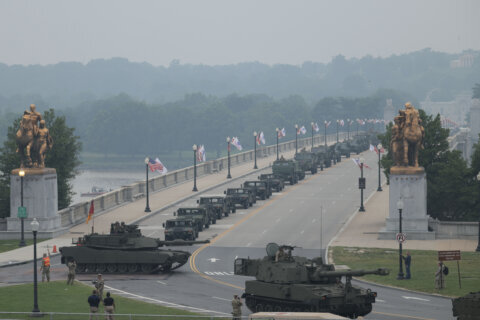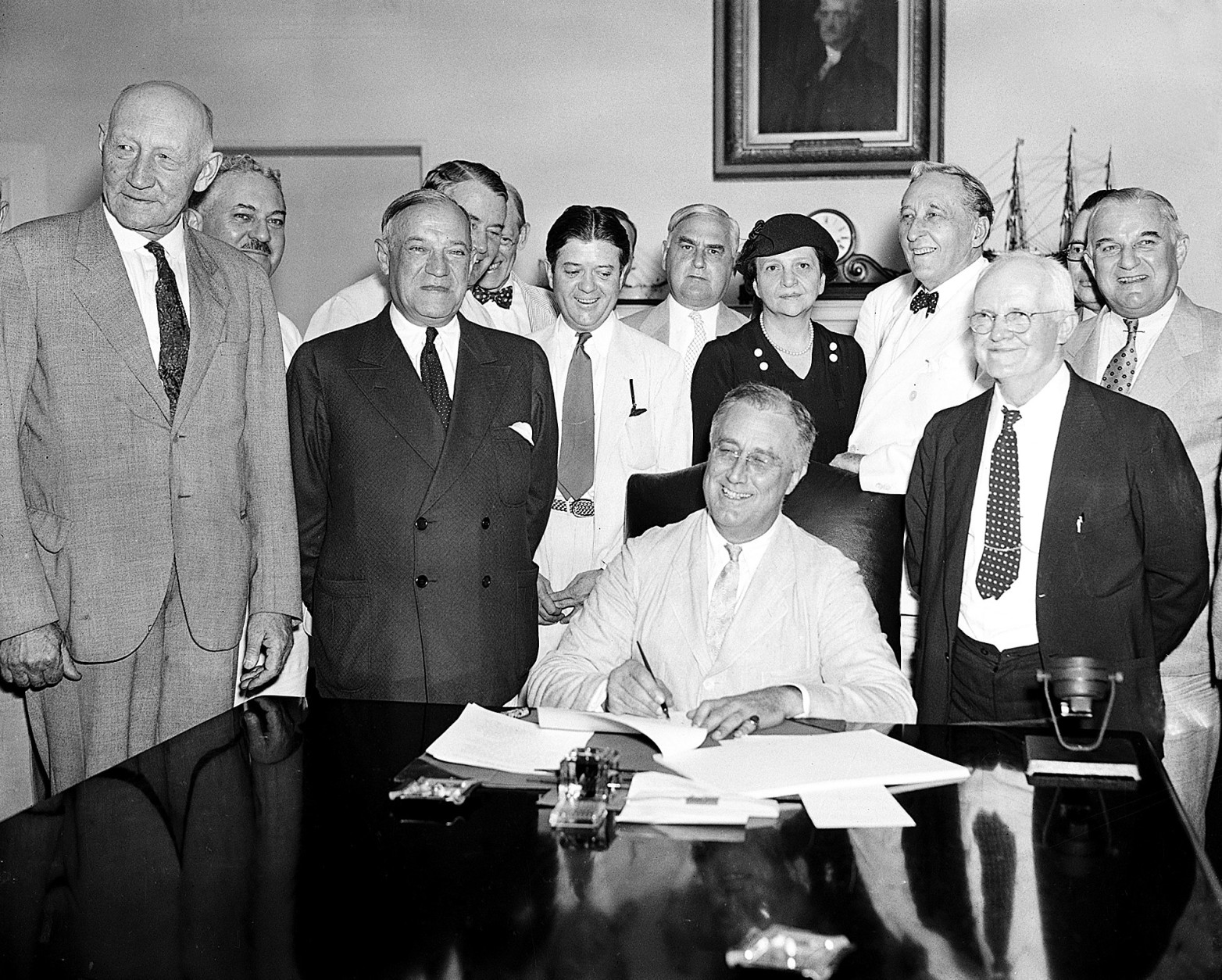
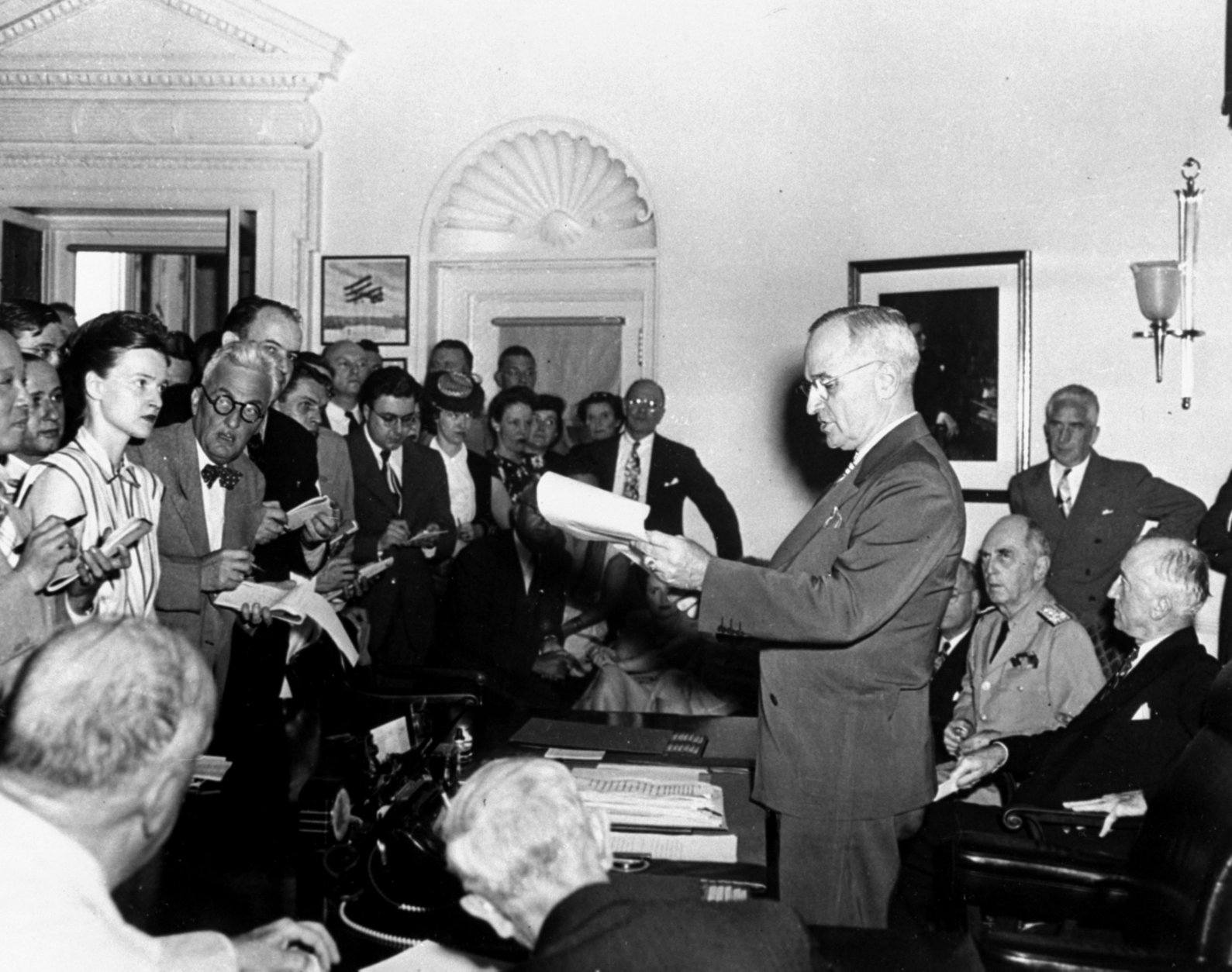
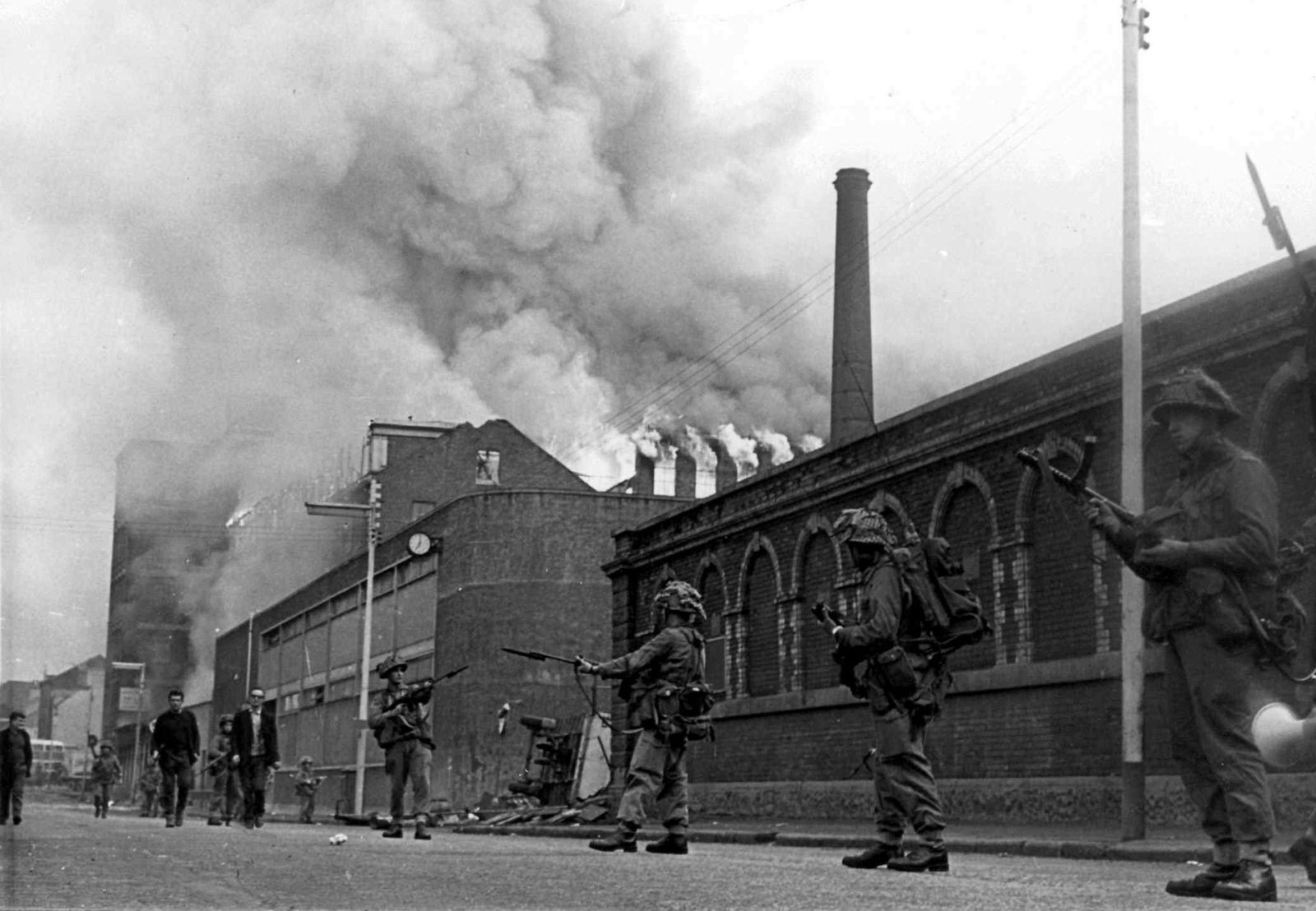
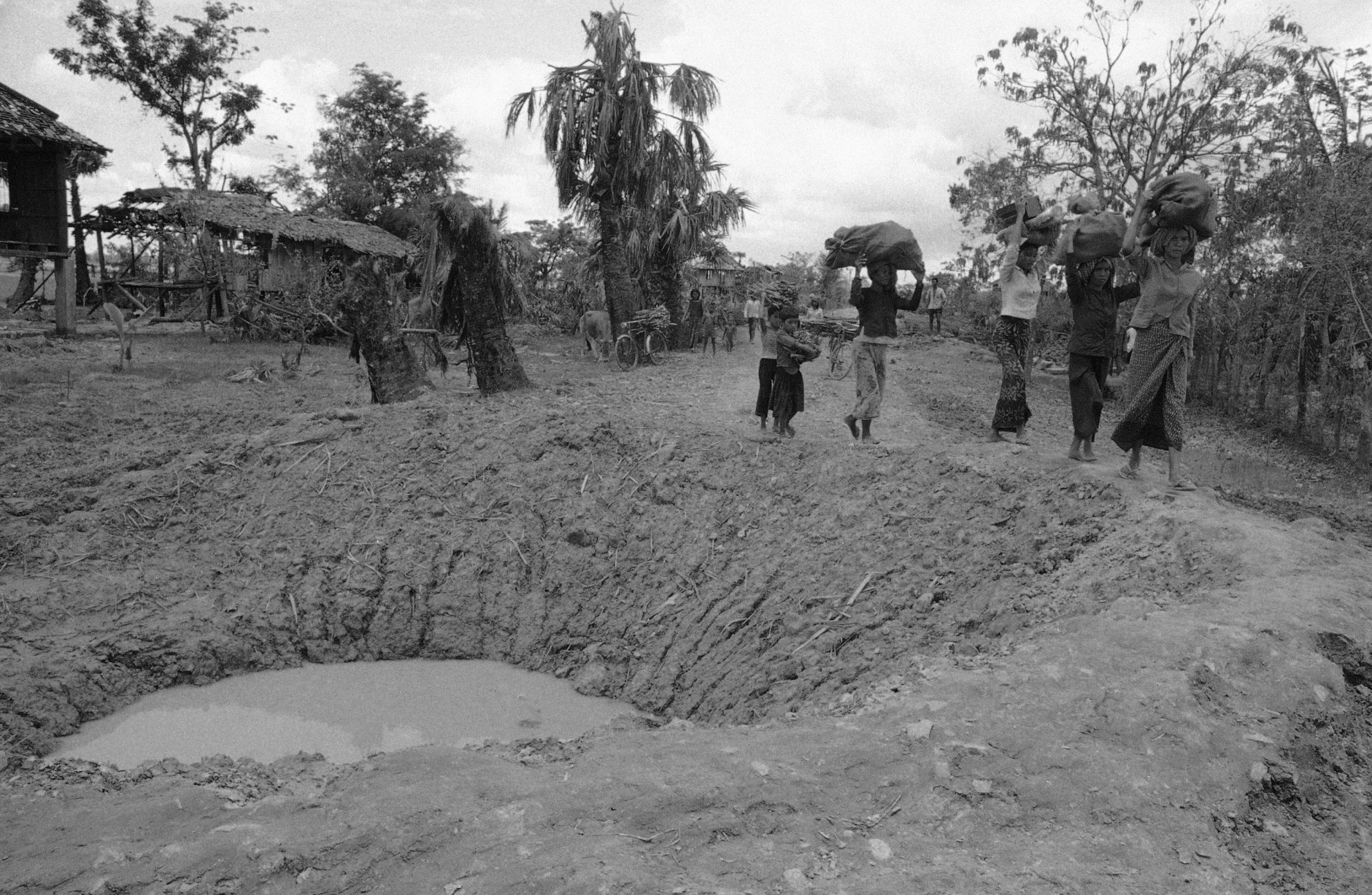

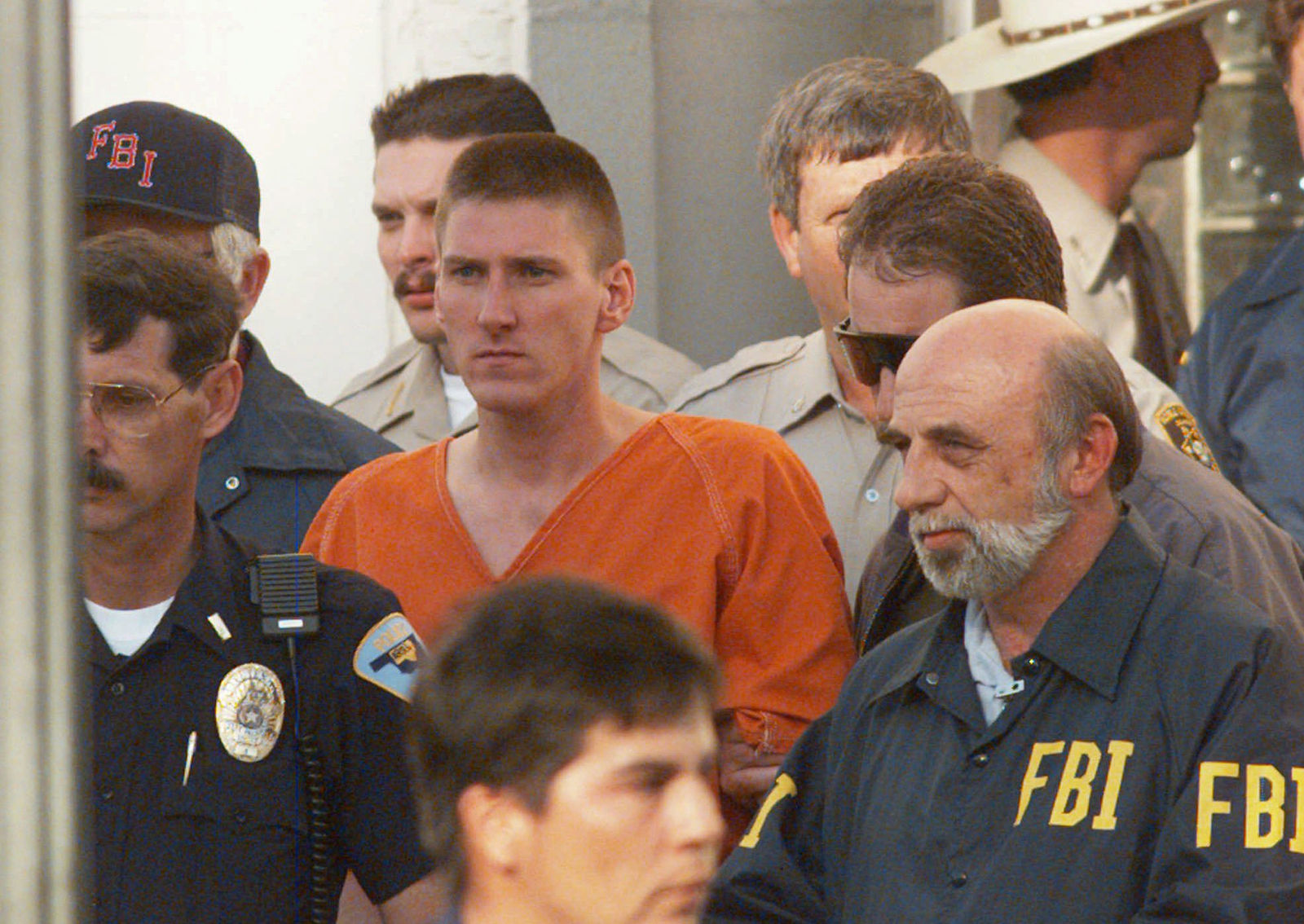
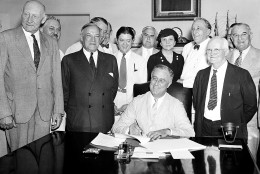
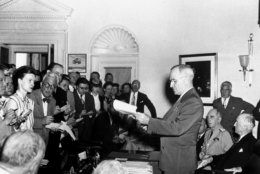
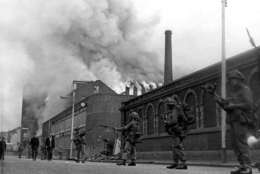


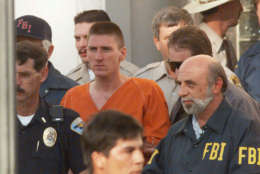
Today is Wednesday, Aug. 14, the 226th day of 2019. There are 139 days left in the year.
Today’s Highlight in History:
On August 14, 1945, President Harry S. Truman announced that Imperial Japan had surrendered unconditionally, ending World War II.
On this date:
In 1900, international forces, including U.S. Marines, entered Beijing to put down the Boxer Rebellion, which was aimed at purging China of foreign influence.
In 1935, President Franklin D. Roosevelt signed the Social Security Act into law.
In 1941, President Franklin D. Roosevelt and British Prime Minister Winston Churchill issued the Atlantic Charter, a statement of principles that renounced aggression.
In 1948, the Summer Olympics in London ended; they were the first Olympic games held since 1936.
In 1969, British troops went to Northern Ireland to intervene in sectarian violence between Protestants and Roman Catholics.
In 1973, U.S. bombing of Cambodia came to a halt.
In 1980, actress-model Dorothy Stratten, 20, was shot to death by her estranged husband and manager, Paul Snider, who then killed himself.
In 1992, the White House announced that the Pentagon would begin emergency airlifts of food to Somalia to alleviate mass deaths by starvation.
In 1997, an unrepentant Timothy McVeigh was formally sentenced to death for the Oklahoma City bombing.
In 2003, a huge blackout hit the northeastern United States and part of Canada; 50 million people lost power.
In 2008, President George W. Bush signed consumer-safety legislation that banned lead from children’s toys, imposing the toughest standard in the world.
In 2017, under pressure from right and left, President Donald Trump condemned white supremacist groups by name, declaring them to be “repugnant to everything that we hold dear as Americans.” The CEO of Merck, the nation’s third-largest pharmaceutical company, resigned from a federal advisory council, citing Trump’s failure to explicitly condemn white nationalists who marched in Charlottesville, Virginia. (Kenneth Frazier was one of the few African Americans to head a Fortune 500 company. The CEOs of Intel and Under Armour also resigned from the American Manufacturing Council later in the day.)
Ten years ago: Kicking off a four-state push for his health care overhaul plan, President Barack Obama denounced what he suggested was news media overemphasis on scenes of angry protesters at town-hall meetings, telling his own gathering in Belgrade, Montana, that “TV loves a ruckus.” Charles Manson follower Lynette “Squeaky” Fromme, 60, convicted of trying to assassinate President Gerald Ford in 1975, was released from a Texas prison hospital after more than three decades behind bars.
Five years ago: Nouri al-Malaki, Iraq’s prime minister for eight years, relinquished the post to his nominated successor, ending a political deadlock. Pope Francis called for renewed efforts to forge peace on the war-divided Korean Peninsula as he opened a five-day visit to South Korea. Rob Manfred was elected baseball’s 10th commissioner, winning a three-man race to succeed Bud Selig. San Francisco said goodbye to Candlestick Park — the stadium where the city’s beloved Giants and 49ers celebrated some of their greatest triumphs — with an evening concert by former Beatle Paul McCartney.
One year ago: A highway bridge collapsed in the Italian city of Genoa during a storm, sending vehicles plunging nearly 150 feet and leaving 43 people dead. Vermont Democrats chose the nation’s first transgender gubernatorial nominee, Christine Hallquist. (Hallquist would get 40% of the vote in November against Republican Phil Scott, who won with 55%.) A state grand jury report concluded that some 300 Roman Catholic priests in Pennsylvania had molested more than 1,000 children since the 1940s and that church officials had covered up complaints. Puerto Rico officials announced that power was restored to the entire island for the first time since Hurricane Maria nearly 11 months earlier. Los Angeles transit officials said the city’s subway system would become the first in the country to install body scanners to screen passengers for weapons and explosives.
Copyright © 2026 The Associated Press. All rights reserved. This material may not be published, broadcast, written or redistributed.

